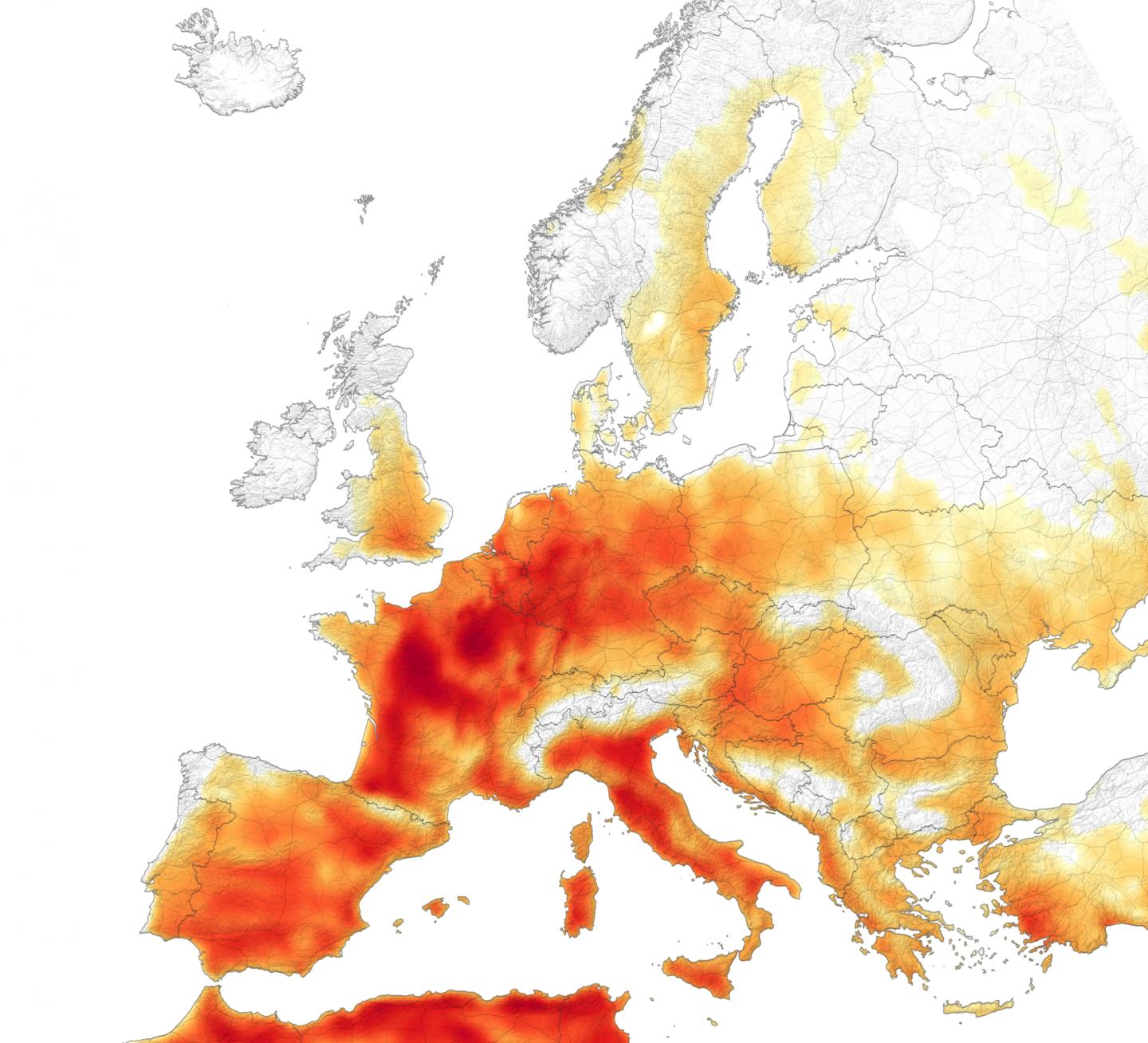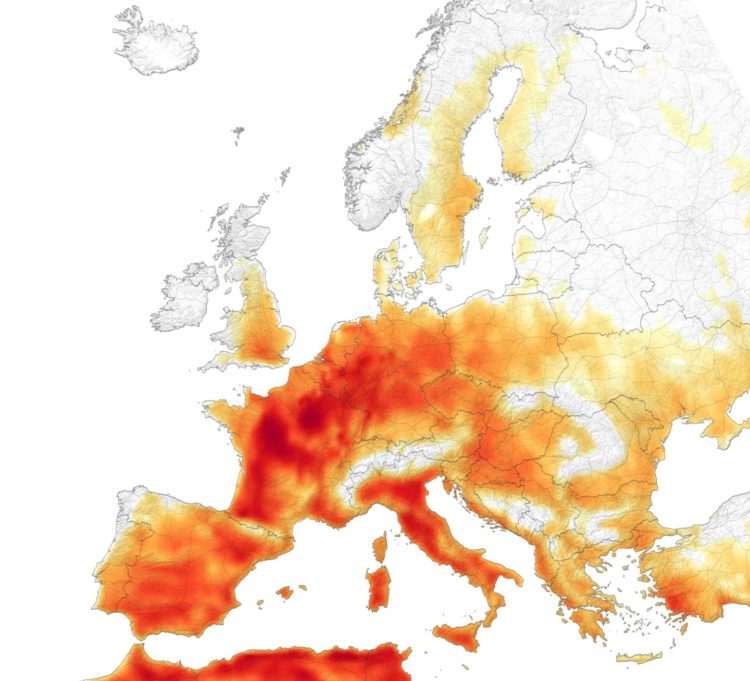Rising global temperatures are increasing exposure to extreme heat and humidity

Credit: NASA Earth Observatory
Heat stress from extreme heat and humidity will annually affect areas now home to 1.2 billion people by 2100, assuming current greenhouse gas emissions, according to a Rutgers study.
That’s more than four times the number of people affected today, and more than 12 times the number who would have been affected without industrial era global warming.
The research is published in the journal Environmental Research Letters.
Rising global temperatures are increasing exposure to heat stress, which harms human health, agriculture, the economy and the environment. Most climate studies on projected heat stress have focused on heat extremes but not considered the role of humidity, another key driver.
“When we look at the risks of a warmer planet, we need to pay particular attention to combined extremes of heat and humidity, which are especially dangerous to human health,” said senior author Robert E. Kopp, director of the Rutgers Institute of Earth, Ocean, and Atmospheric Sciences and a professor in the Department of Earth and Planetary Sciences in the School of Arts and Sciences at Rutgers University-New Brunswick.
“Every bit of global warming makes hot, humid days more frequent and intense. In New York City, for example, the hottest, most humid day in a typical year already occurs about 11 times more frequently than it would have in the 19th century,” said lead author Dawei Li, a former Rutgers post-doctoral associate now at the University of Massachusetts.
Heat stress is caused by the body’s inability to cool down properly through sweating. Body temperature can rise rapidly, and high temperatures may damage the brain and other vital organs. Heat stress ranges from milder conditions like heat rash and heat cramps to heat exhaustion, the most common type. Heat stroke, the most serious heat-related illness, can kill or cause permanent disability without emergency treatment, according to the U.S. Centers for Disease Control and Prevention.
The study looked at how combined extremes of heat and humidity increase on a warming Earth, using 40 climate simulations to get statistics on rare events. The study focused on a measure of heat stress that accounts for temperature, humidity and other environmental factors, including wind speed, sun angle and solar and infrared radiation.
Annual exposure to extreme heat and humidity in excess of safety guidelines is projected to affect areas currently home to about 500 million people if the planet warms by 1.5 degrees Celsius (2.7 degrees Fahrenheit) and nearly 800 million at 2 degrees Celsius (3.6 degrees Fahrenheit). The planet has already warmed by about 1.2 degrees (2.2 degrees Fahrenheit) above late 19th century levels.
An estimated 1.2 billion people would be affected with 3 degrees Celsius (5.4 degrees Fahrenheit) of warming, as expected by the end of this century under current global policies.
In New York City, extreme heat and humidity, comparable to the worst day in a typical year today, is projected to occur on four days in a typical year with global warming of 1.5 degrees Celsius (2.7 degrees Fahrenheit) and about eight days per year with warming of 2 degrees Celsius (3.6 degrees Fahrenheit). With 3 degrees Celsius (5.4 degrees Fahrenheit) of warming, extreme heat and humidity are projected to occur for about 24 days in a typical year.
###
The paper was co-authored by Jiacan Yuan, a former Rutgers assistant research professor in the Department of Earth and Planetary Sciences who is now at Fudan University in China.
Media Contact
Todd Bates
[email protected]
848-932-0550
Original Source
https:/
Related Journal Article
http://dx.





